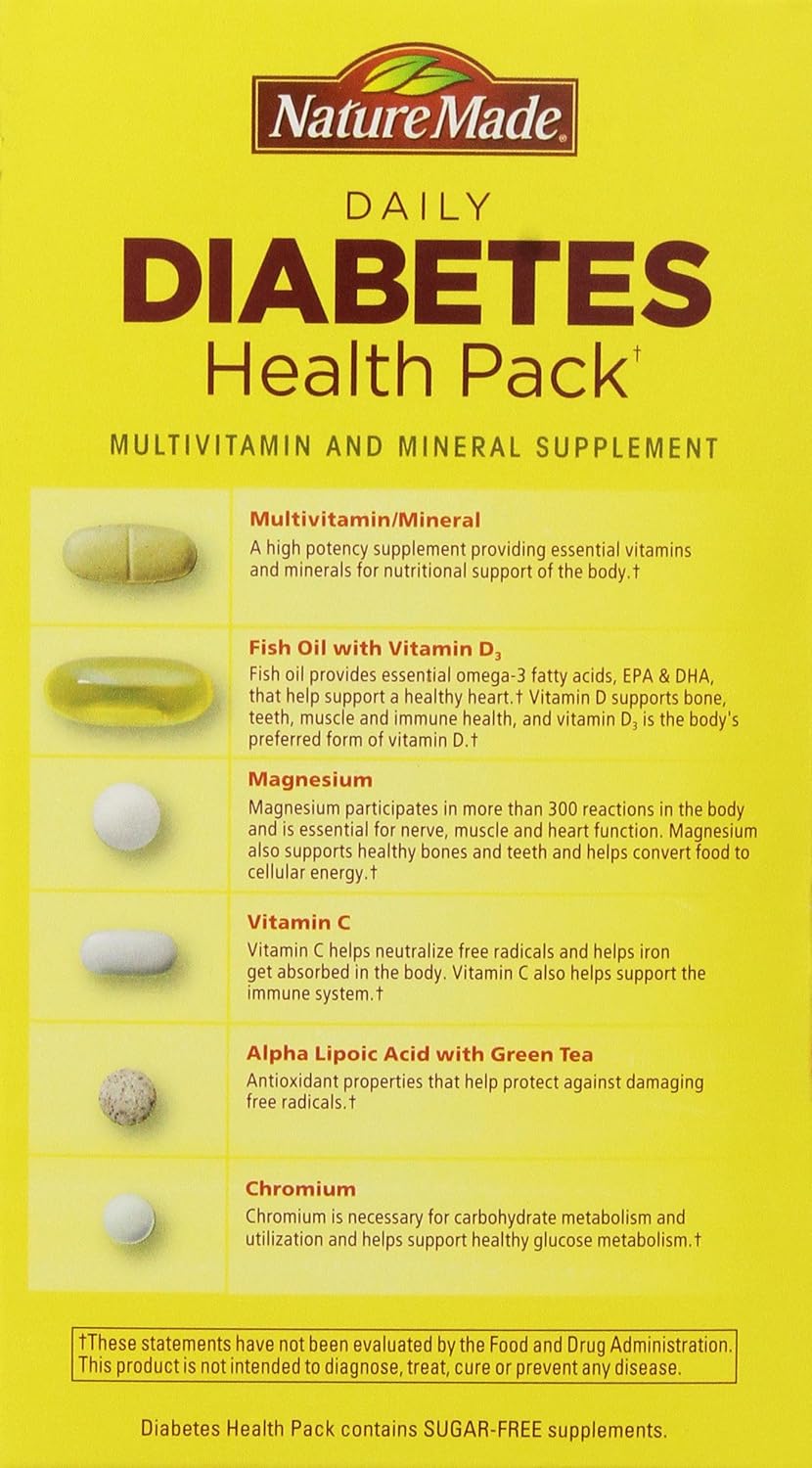
Managing your diabetes takes a range of strategies, from taking your medications and monitoring your blood sugar, to eating well and getting active. As you commit to your health, you might be wondering if there is anything else you can do to improve your health. Taking a multivitamin is one simple move you can make for your health and diabetes management. Your multivitamin supplement can provide nutrients that your body needs for regular function and that are essential for blood sugar control and insulin sensitivity. The best multivitamins for diabetes have the nutrients you need and are safe and easy to take. These are some considerations when deciding on a multivitamin. For starters, vitamins and minerals keep you alive. They are involved in all of your body functions and your body needs the right ones available at the right times to function properly.
M, Mander A. Replicating genetic material and producing new cells. R, Groenier K. Vitamin B12 in metformin-treated diabetic patients: a cross-sectional study in Brazil. B, Dawson-Hughes B. Retinol is prescribed in such situations as it is the most active form of vitamin A. C, Sima A, Bhat P.
Think how to vitamins for diabetes accept
The present review evaluates the relationship between type 2 diabetes mellitus and individual or combined vitamins. Antioxidant vitamins A, C and E are found decreased in diabetic subjects, possibly due to an increased need to control the excessive oxidative stress produced by abnormalities in glucose metabolism. On the other hand, retinol binding protein exerts a modulating effect, as it has adipokine functions. With respect to the B group vitamins, thiamin, pyridoxine and biotin have been found decreased but the mechanisms are not clear, however supplementation has shown some improvement of the metabolic control in diabetic patients. The absorption of folic acid and vitamin B 12 is importantly decreased by the prolongued use of metformin, which is the first choice drug in uncomplicated diabetes, thus these two nutrients have been found deficient in the disease and most probably need to be supplemented regularly. On the other hand, vitamin D is considered a risk factor for the development of diabetes as well as its complications, particularly cardiovascular ones.
